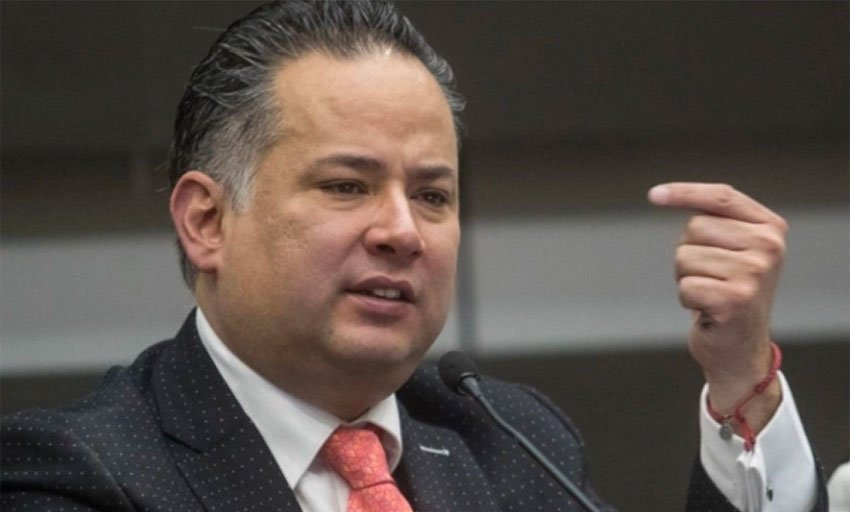The government will block the bank accounts and seek to seize the assets of the company whose semi-trailers were used to attempt to transport almost 800 Central American migrants to the northern border, federal officials said.
Police stopped four semi-trailers carrying 782 undocumented migrants in Veracruz on Saturday, the first major action in a new immigration strategy adopted after Mexico reached an agreement with the United States to do more to stop migration through the country to the northern border.
The chief of the Financial Intelligence Unit told reporters that a criminal complaint against the unnamed company and its drivers will be filed with the federal Attorney General’s Office (FGR).
Santiago Nieto noted that 26 people allegedly involved in the trafficking of migrants have already been reported to the FGR and had their bank accounts frozen, adding that “today a new [criminal complaint] will be presented in relation to the case we saw in Veracruz.”
He described the conditions in which the migrants were transported as “practically subhuman” and pledged that those responsible will have their bank accounts blocked and face criminal charges.

Earlier yesterday, Foreign Secretary Marcelo Ebrard said the government will initiate efforts to seize the assets of the transport company involved in the foiled people smuggling attempt as well as those of any other businesses involved in the illegal transport of migrants.
Any attempts by transportation operators to deny knowledge of their vehicles being used for human trafficking activities will not protect them from prosecution, he said.
“. . .Let’s suppose that there was an accident with these people on the weekend. What would the owners of these semi-trailers say? Probably that they had no knowledge, but the law says that they do have responsibility and that it’s not enough to just say that they didn’t know [what their vehicles are being used for] because obviously they do know, it’s almost impossible for a few semi-trailers . . . to provide service for several days and for the owners to not know where they are,” Ebrard said.
The foreign secretary said the migrants who were “rescued” on Saturday paid a total of 69 million pesos (US $3.6 million) to be transported to the Mexico-United States border, explaining that most told authorities they paid US $3,500 each for the service.
However, some paid $5,000 for a “second round” in case they should be arrested during their first attempt and deported to their country of origin, Ebrard said.
He added that most migrants either make the payments in their home countries or upon arrival in the United States.
Ebrard said the authorities of those countries must collaborate with investigations into human trafficking networks to determine exactly who is involved and how they operate.
The foreign secretary warned that Mexico is facing one of the “most significant human trafficking [operations] in the world,” which he described as a “very lucrative business.”
Arrests of undocumented migrants in the United States have spiked significantly in recent months, raising the ire of President Donald Trump who threatened to impose tariffs on Mexico if it didn’t “take action to dramatically reduce or eliminate the number of illegal aliens crossing its territory into the U.S.”
A June 7 agreement in which Mexico agreed to “take unprecedented steps to increase enforcement to curb irregular migration,” including the deployment of 6,000 National Guard troops to the southern border, indefinitely suspended the tariffs that would have been imposed on June 10.
However, if the United States decides that the anti-migration measures are not achieving the desired results by the third week of July, Mexico has agreed to take “all necessary steps under domestic law” to implement a safe third country agreement, according to a supplementary agreement signed by both countries.
Source: Milenio (sp)
